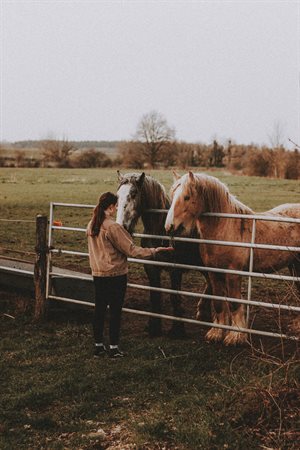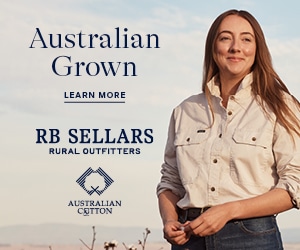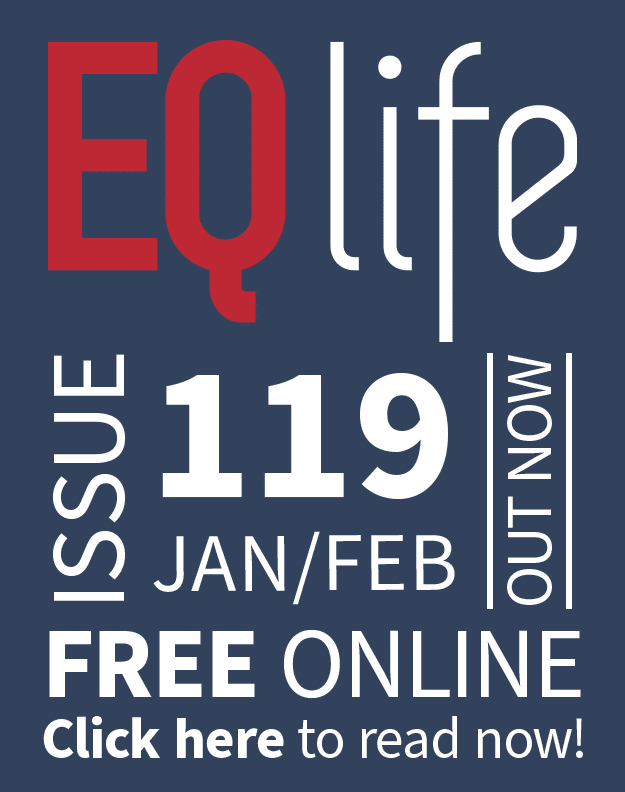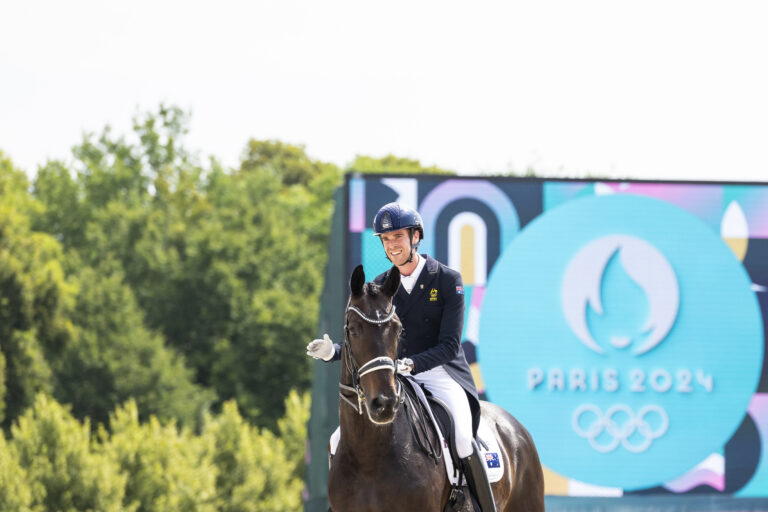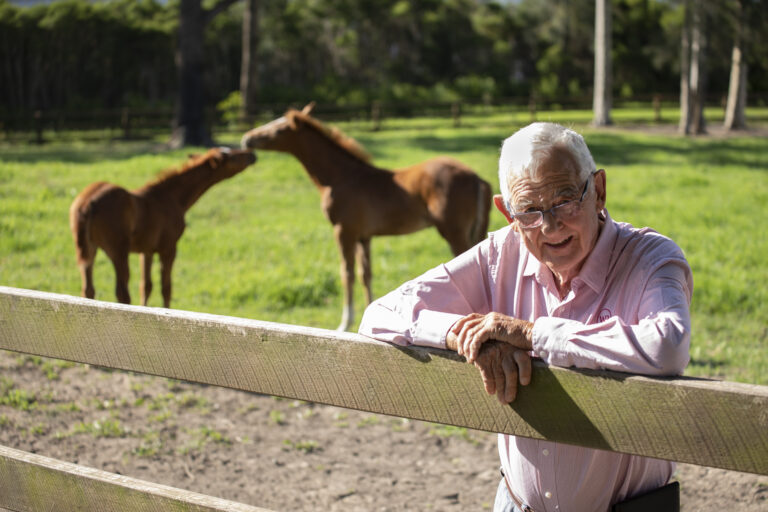By Valerie Davis
The road to being a professional in the equestrian industry can be a wildly unpredictable and rewarding journey. For many, it’s a dream that never quite gets off the ground, but for some, they will go to extraordinary lengths to fulfil it. However, the reality of being a full-time equine professional can be harsh and turn something that used to be an outlet of joy into an exhausting grind. For Valerie Davis, the reality of being a professional became too much and now she’s on another journey to reclaim that status of ‘amateur’ again…
“I’m a horse trainer in limbo – a professional trying to get her amateur status back. It’s not a decision I’ve made lightly and some days I think I won’t make it; I’m only a month into the twelve-month ordeal. I’ve have been thinking about quitting for probably about a year now if I’m being completely honest. I had a pretty decent run for as young professional for nearly 10 years. I got to work alongside some of the best in the business. I coached the 2013 Middle School IEA National Champion team, I transitioned many OTTBs to near careers, backed baby racehorses, and coached IHSA. I’ve been lucky enough to coach riders through their first canter, first jump, and first horse show. A few of my students have even gone on to start their own professional careers. I’ve enjoyed most moments of my professional career.
But, after a series of unfortunate events, I started to question my dedication to life as professional. Let me tell you, that was so hard to admit to myself let alone anyone else for about a year. Being a professional had become more than just my occupation – it felt like a large part of my identity. I first started teaching and training filling in for my stepdad at our small family farm as a teenager. I majored in Equestrian Studies in school. Other than my first job at Dairy Queen in high school, I had never worked outside of the horse industry. Literally every decision I made regarding my future revolved around being a professional horse trainer.
The first unfortunate even that happened to my career was the closure of the business and farm I had started my career and worked at for about seven years. I struggled for a few months while working part-time horse related jobs then slowly started building up my own clientele. After a while I landed a job at equine insurance agency. It was still in the horse industry, but I was introduced to the 9-5, weekends off, health care, and paid vacation time world. I wasn’t willing to give up starting my day with horses, so I rode before work then taught and rode clients’ horses in the evenings and on Saturdays. I built a decent sized client base for the time I had to dedicate to it. I operated my own small business out of wonderful boarding facility for three years. I had mostly great clients and horses, but running my own business even just part-time is where I started to experience the burn out that everyone warns you about – the burn out you swear you’ll never get.
I was tired of clients not respecting boundaries; you know texting all hours of the nights, expecting me to bend over backwards to accommodate outrageous schedules, the norm. I will be the first to tell you that feeling under-appreciated as trainer is probably the number two reason any of us decide to quit. The number one reason will always come down to what’s best for the horse – like trying to convince owners that they aren’t ready for the division they’d like to show in or to pay for the proper care of their horse, which is also something I had been dealing with all three years I was on my own – it’s what I lost most sleep over. I felt like I was fighting a losing battle. I felt personally responsible for all of my clients’ horses, but at the end of the day, they weren’t my horses and their owners sometimes made decisions that I knew in my gut weren’t in the horse’s best interest. I tried my best to fight that battle, but it was exhausting. I had also become resentful of the amount of time their horses took from my personal horse and I longed to be the student again, not just the instructor. I became so critical of myself. I constantly felt like I was letting someone down, whether it was not being able to accommodate everyone’s schedule every week or not being able to convince the owner that their horse needed to see the vet that month. As I struggled with my own internal criticism, I lost confidence in my own riding.
And if it weren’t for unfortunate event number three, I probably would have continued on for a few more years in that burn out. The third unfortunate event was when the husband and wife that owned the boarding facility closed down because COVID encouraged them to retire early.
The next farm we went to was short lived because the barn managed quit and pulled out in the middle of the night about a month into our stay there and things quickly had gone downhill from there. I had lost a few people when we moved to this farm because finding a good fit for every horse and rider is difficult, then lost another client from this move to the next farm for the same reason. I started to feel like the amount of effort I was putting in wasn’t worth the pay and hours, and also, again, that everything I was doing was going mostly unappreciated.
I am a firm believer that you alone are responsible for how things make you feel – It was my problem that I was putting in hours that I didn’t feel fairly compensated for (I was my own boss, after all). It was my problem that I let myself focus on the few people that made me feel unappreciated; I had just as many wonderful customers as I did less than wonderful customers. It was my problem that I allowed my customers to disrespect boundaries.
I managed to spend the summer doing a little be of showing, trail riding, and dipping my toes into eventing. I loved it! I felt like a kid again. I was in love with the sport and my horse and the only source of stress in my life came from being a professional.
That was my break-through. I was ready to give up the stress. I was ready to have fun with horses again. I was ready to focus on my own goals and my own horse. Carrying around the goals of my students for so long was so taxing. I was just ready to be done. At the same time, I was talking with my boyfriend about moving from Ohio to Maryland. Once I got a remote job that allowed me to move, that was all I needed to take the plunge. I took the job, moved, and found a place for my horse at a wonderful hunter jumper farm in the mountains of Maryland that provides ideal care for my horse and has amazing trails and arenas for me. I’ve become a student again. I’ve taken weekly lessons for the first time in YEARS. For the first time in my entire adult life I only have one job, which alone has removed an amazing amount of stress for me.
I miss teaching and training. I miss my students and training horses. I miss fitting together the puzzle pieces of the horse’s needs with the rider’s goals. I miss having a variety of horses to ride. Hell – I miss the extra money that my part-time profession provided. But for now, it’s worth it to have the extra time in my non-horse life and to be able to focus intently on my own horse and education.
Sometimes I feel like I am coping out. Sometimes I feel like I’m giving up a part of myself. I feel like I’m throwing away my education.
But that’s not what it’s about. I’m am CHOOSING a new path. I am REDISCOVERING myself.
And maybe I won’t make it the full twelve months to be eligible for my amateur status back, but that’s OK. For me that’s not what it’s about. For me it’s not about the status or context of being a professional, it’s about creating a path for me to have the time and energy to invest in my own riding career and to get back in touch with “the little girl who fell in love with the sport.” As the case with most horse trainers, I am goal oriented and chasing the twelve months of no teaching and training keeps me on track with my goal of putting my riding career and horse first.
I know I can always return to the professional world if I want. I’ve started to think about if that ever happens what capacity and stipulations I would want, but for now here’s to the journey back to my roots – galloping through the woods and showing without the weight of someone else’s expectations. Whether you’re a professional, an amateur, or junior I encourage you to continuously reevaluate what’s working in your equine life and ruthlessly edit what isn’t cutting it for you anymore. Surround yourself with people that support you. In my best Mufasa voice, “Remember who you are.”
Autobiography:
Valerie Davis grew up on a Morgan horse farm in Ohio and holds a BS in Equestrian Studies and BA in English from Lake Erie College. She’s ridden on LEC’s IHSA team, as well as coached IEA and IHSA teams in the past. She now lives in Maryland with her golden retriever, Peter, and OTTB, Delta. She enjoys showing in hunters and jumpers, trail riding, and has recently started exploring eventing.
READ THE LATEST NEWS ARTICLES HERE

